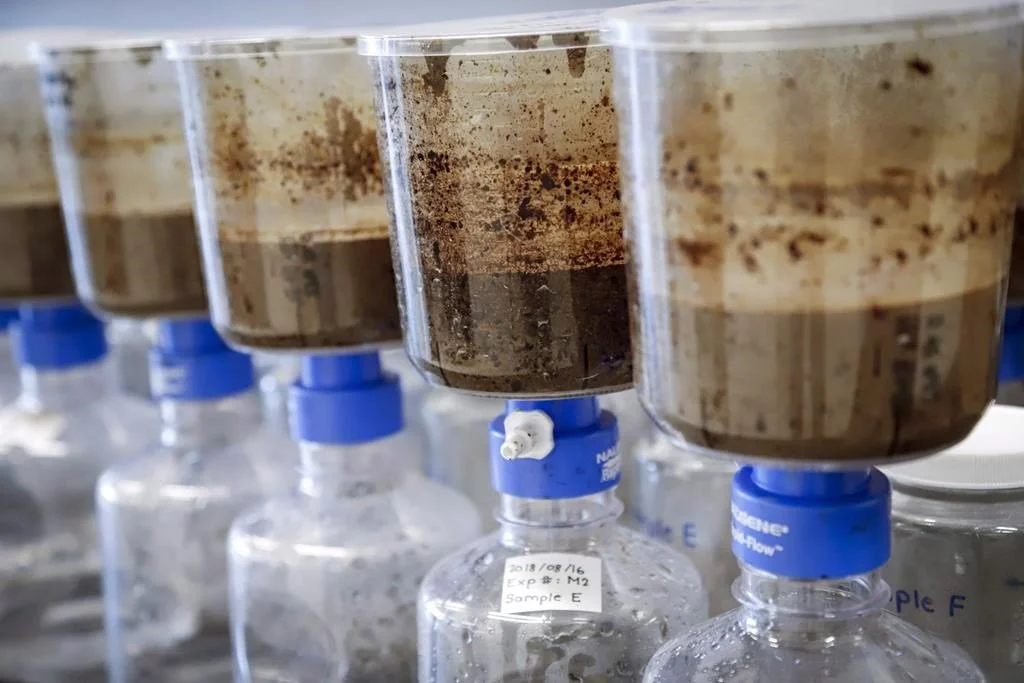The Alberta Energy Regulator has warned Imperial Oil about more wastewater problems at its Kearl oilsands mine in northern Alberta. The regulator has issued a notice of non-compliance to the company after chemicals associated with oilsands tailings were found at an off-site well at levels that exceed provincial guidelines.
Youth welcomed with ‘open arms’ to UN water conference
The conference, set to take place in New York from March 22 to 24, is the first in almost 50 years solely devoted to creating a water action agenda. It aims to address the “alarmingly off-track” progress on water-related goals and targets that are “jeopardizing the entire sustainable development agenda,” the United Nations wrote on its website. The conference is a unique opportunity to solve the world’s water problems, said Dousse, 36. “The 21st century will be blue or there won't be any other centuries for the generations to come,” Dousse said.
Idlout calls for $180M from feds to fix Iqaluit water problems
Nunavut MP Lori Idlout is calling for $180 million from the federal government to “end the water emergency in Iqaluit.” The government should “fix an issue of basic human rights … as the federal government would for any other major Canadian city,” Idlout wrote in a Friday letter to federal Infrastructure and Communities Minister Dominic LeBlanc. Idlout didn’t say exactly what the money would be used for, but mentioned Mayor Kenny Bell’s recent statements that the city needs a new water source and treatment plant.
Prince Rupert business refuses to pay taxes until water fixed
A Prince Rupert business is refusing to pay taxes until the city’s tap water is “safe”, and placed a sign in the front window publically stating the declaration on Sept. 28. At Hasami Hair Studio, some customers have said they do not want their hair washed because of the boil water advisory the municipality issued on Sept. 21, Jason Eleuterio, co-owner of the hair studio, told The Northern View. “If you notice, it’s kind of ‘slicky’, like greasy to touch,” Eleuterio said.
How healthy is your office?
“Sick building syndrome, according to the World Health Organization (WHO), recognizes the syndrome in buildings that at least 20 per cent of the occupants complain of the same the same illness: it can be headache, it can be diarrhea, it can be gastrointestinal illnesses,” says Gil Blutrich, founder and CEO of Clear, an air and water purifying company in Toronto. New York experienced water problems due to old infrastructure. “When it started to run through the pipes in New York city, the average age of the piping is over 100 years old so when the pipe started to rust, only 75 per cent reached the building, the rest disappeared, dissipated through a hole in the system.” This produced a problem called the “last mile syndrome,” says Blutrich, where the water is coming out and pathogen and bacteria is coming in.
Bashaw home owner says town won’t deal with bad drainage problem
A Bashaw property owner wants the Town of Bashaw to do more with a serious drainage problem on her property. Hazel Brooks, 82, who’s lived at her current property since 2011, told the ECA Review in a July 15 phone interview that she owns two adjacent lots which had no serious drainage issues before the construction of a major new building in town. “Before this new school was built, there was no problem,” said Brooks, who added she never noticed water problems on her property until 2016.
Rural N.L. towns struggling to pay mounting costs of clean drinking water
On any given day in Newfoundland and Labrador, there are about 200 boil-water advisories in place in rural communities — and it's not only a problem of public health, but of the viability of small towns themselves. Governments have known for decades the seriousness of the situation, but the problem persists, for several reasons, starting with cost.
NDP says province, Doug Ford need to 'step up to plate' during Attawapiskat water emergency
People in Attawapiskat continue to speak out about their water problems with some high-profile visitors this week. Attawapiskat's Chief and Council declared a state of emergency more than a week ago when water tests came back with higher-than accepted levels of trihalomethanes. Exposure to trihalomethanes can be connected to an increased risk of bladder and possibly colon cancer in people who drank chlorinated water for 35 years or more.









